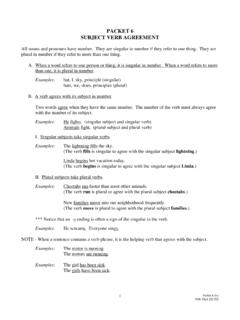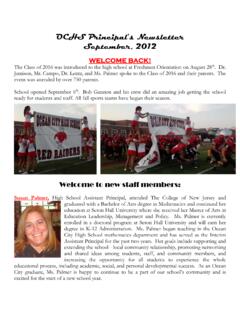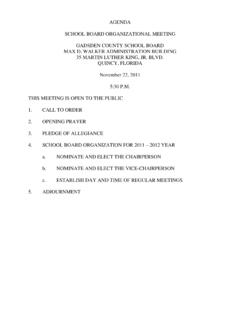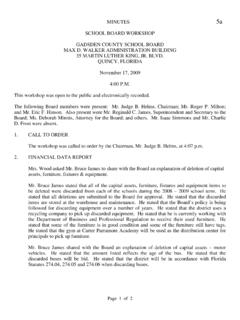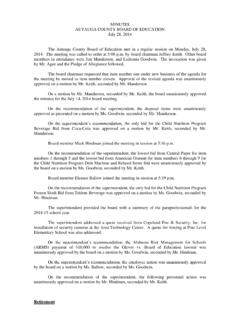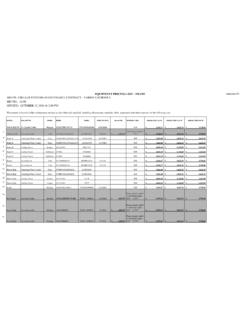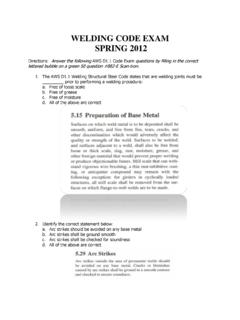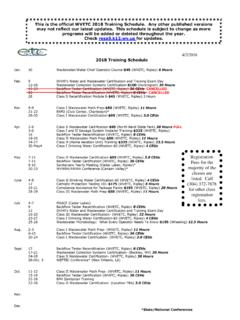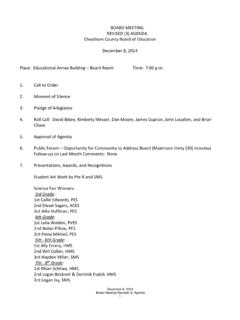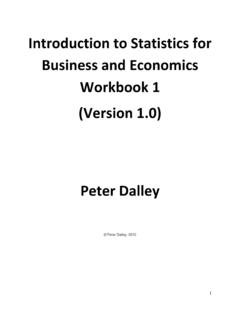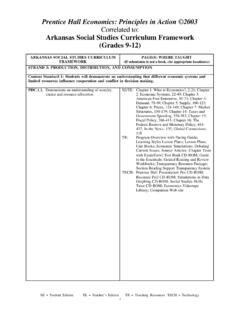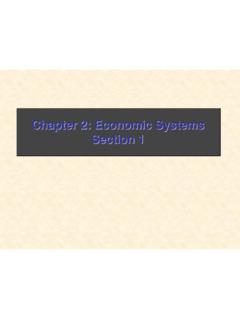Transcription of Pearson: Prentice Hall Economics (Textbook)
1 1 Pearson: Prentice hall Economics (Textbook) 1. Arthur O'Sullivan, Professor of Economics at Lewis and Clark College in Portland, Oregon. degree in Economics from Princeton University 2. Steven M. Sheffrin, Professor of Economics and director of the Murphy Institute at Tulane University in New Orleans BA from the College of Social Studies, Wesleyan University in Economics from Massachusetts Institute of Technology Pearson Economics Home Page (Textbook) Other Economists1 1. Milton Friedman, Recipient of the 1976 Nobel Prize in Economics . from Rutgers University from the University of Chicago from Columbia University 2. Walter Williams, Professor of Economics at George Mason University. in Economics from California State University, Los Angeles and degrees in Economics from UCLA 3. Thomas Sowell, Rose and Milton Friedman Senior Fellow on Public Policy at the Hoover Institution, Stanford University.
2 In Economics (magna cum laude) from Harvard Master s degree in Economics from Columbia University in Economics from the University of Chicago 4. Art Carden, Assistant Professor of Economics at Samford University. in Economics from Washington University in St. Louis. 5. Benjamin Powell, Director of the Free Market Institute at Texas Tech University. degree in Finance and Economics from the University of Massachusetts at Lowell in Economics from George Mason University 1 Represents only a partial listing 2 6. Mark Wilson Principal at Applied economic Strategies, LLC in Economics from Kent State University Master s Degree Economics at George Washington University 7. Steve Horwitz, Professor of Economics and department chair at St. Lawrence University. in Economics and philosophy from The University of Michigan MA and in Economics at George Mason University and received his in Economics and philosophy from The University of Michigan Articles Used in Classroom2 Free Trade and Globalization 1.
3 The City That Trade Built 2. The Case for Free Trade 3. Trade versus Protectionism 4. Trade Creates Wealth. Protectionism Destroys It. 5. Lessons in Liberty: Hong Kong, Crown Jewel of Capitalism 6. Myths We Live By 7. Creative Destruction 8. Job Destruction Makes Us Richer Outsourcing 1. The Case for Outsourcing Jobs 2. Outsourcing and Saving Jobs 3. Outsourcing 4. Should We Save Jobs? 5. How Outsourcing Creates Jobs for Americans 6. Obama and Romney are Wrong: Outsourcing is America at its Best 7. Is Outsourcing American Jobs Wrong? Poverty 1. Poverty in America 2. Myths About the Poverty Stricken 3. Understanding Poverty in the United States: Surprising Facts About America's Poor 4. More Than Billion People Live on Less Than $ a Day 5. It's capitalists, not charities, who do the most for the poor 6. Why Do the Poor Stay Poor? 7. War on Poverty Revisited 8. Curing poverty or using poverty? 2 Represents only a partial listing.
4 3 Price Controls 1. An Ancient Fallacy: Price Controls 2. Price Gouging Saves Lives in a Hurricane 3. Price-Gouging 4. Why Economists Love Price Gouging, And Why It's So Rare 5. In praise of 'price gouging' 6. Rent Control 7. The Folly of Rent Control 8. How Farm Subsidies Harm Taxpayers, Consumers, and Farmers, Too Minimum Wage 1. Should We Care About the Minimum Wage? 2. Minimum Wage Madness 3. More Questions for Proponents of Pricing Low-Skilled Workers Out of Jobs 4. Repeal The Minimum Wage 5. Minimum Wage's Discriminatory Effects 6. The Negative Effects of Minimum Wage Laws 7. What is Minimum Wage: Its History and Effects on the Economy 8. Minimum Wage Laws in the States Sweatshops 1. In Defense of Sweatshops 2. Sweatshop Exploitation 3. Third World Sweatshops 4. Where Sweatshops Are a Dream 5. How Sweatshops Help the Poor 6. The Case for Sweatshops
